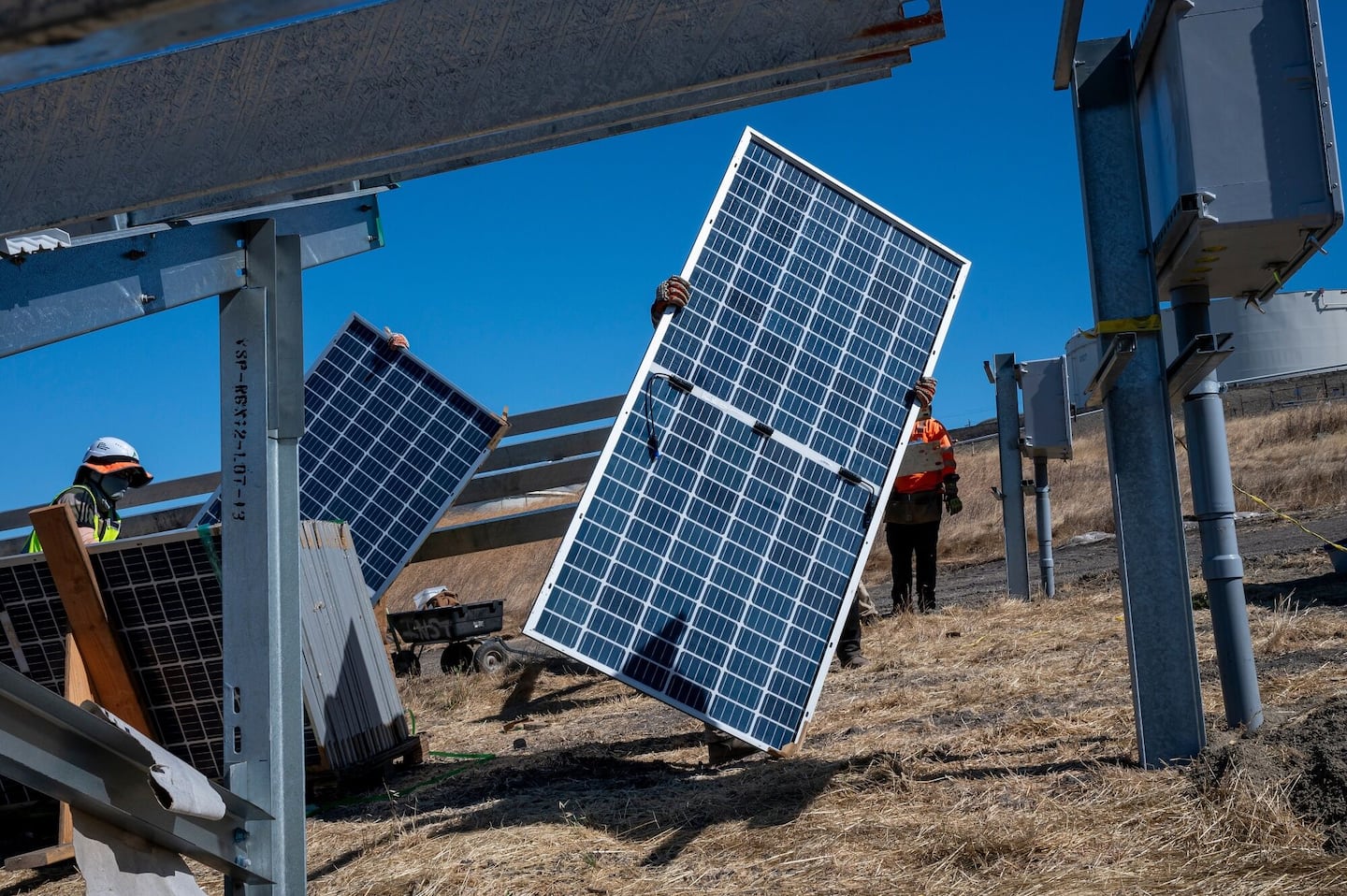Massachusetts braces for clean energy layoffs amid Trump’s cuts
July 19, 2025
July 19, 2025
By Yogev Toby
Massachusetts could lose an estimated 30,000 jobs and more than $3 billion in wages over the next decade as the federal government rolls back incentives that support wind, solar, and other clean energy technologies, according to a recent report.
The cuts to clean energy funding are part of the “One Big Beautiful Bill” signed into law on July 4 by President Trump. The new law will phase out tax credits for clean energy programs — specifically, the 30 percent tax credit for qualifying projects under the 2022 Inflation Reduction Act — over the next few years.
Since the bill’s signing, the Trump administration has continued to slash clean energy programs worth hundreds of millions of dollars. This month, the president signed an executive order that may retroactively disqualify clean energy projects from the tax credits, a move that would likely be challenged in federal court.
The cuts could hit Massachusetts particularly hard. Massachusetts has developed one of the nation’s leading clean energy sectors, supporting the industry with money and policies. For example, the state in 2020 set a legally binding goal to slash the state’s greenhouse gas emissions in half (compared with 1990 levels) by 2030 and achieve net-zero carbon emissions by 2050.
The number of people working in the clean energy industry has doubled since 2010, to an estimated 115,000, according to the Massachusetts Clean Energy Center. The US Labor Department projects that wind turbine technicians and solar installers will grow faster than any other occupation from 2023 to 2033 nationally.
Some companies are already feeling the impact. New Leaf Energy, a renewable energy developer based in Lowell, recently laid off 41 workers, or about 20 percent of its employees, blaming the federal government’s decision to end the investment tax credit for solar and wind energy.
Dan Berwick, the company’s chief executive, said in a statement that the layoffs were a necessary step to remain stable in the face of federal cutbacks. He said the company’s projects will continue to be marketed and sold on schedule.
“The pathway to developing clean energy projects has narrowed,” Berwick said, “but it has not vanished.”

In addition to losses in jobs and wages, the report by the research firm C2ES estimates that the cutbacks in federal clean energy incentives will shave about $6 billion, or 1 percent, from overall economic activity in Massachusetts.
Rebecca Tepper, secretary of the Massachusetts Executive Office of Energy and Environmental Affairs, said in an interview that the timing of the bill couldn’t be worse. The federal government is withdrawing its support as the demand for electricity is growing rapidly, driven by the power-hungry technology industry.
“We need all the megawatt hours that we can get from solar and wind,” she said. “Solar is the cheapest and fastest way for us to bring energy into the state. It’s bipartisan and extremely popular with customers.”
Nationally, the Solar Energy Industries Association estimates a loss of approximately 300,000 solar energy jobs, including 6,100 in Massachusetts, over the next few years.
Frank Callahan, president of the Massachusetts Building Trade Union, said the “big, beautiful” bill will eliminate thousands of job opportunities. Some offshore wind projects have already stalled, and more may be shelved, he said.
“This seems to be the biggest job-killing bill in American history,” Callahan said.
But state and industry officials say they are confident that Massachusetts and New England will find a way to continue the transition to clean energy.
“This is a resilient industry and economy,” said Joe Curtatone, the president of the Alliance for Climate Transition advocacy group and former mayor of Somerville. “It has put billions of dollars into the Massachusetts economy for more than a decade.”

Without federal support, Massachusetts will rely on state programs sponsored by utility companies, such as net metering, which allows people to sell excess energy back to the grid, and SMART, which offers financial incentives to households and businesses that install solar panels.
Massachusetts Department of Energy Resources Commissioner Elizabeth Mahony said policymakers had taken the federal government’s hostile approach to clean energy into account when creating state-funded programs.
“There will be some hard times, but [the industry] is going to come back,” Mahony said. “We want to do everything we can for the next couple of years to be there for them.”
Yogev Toby can be reached at yogev.toby@globe.com.
.png)